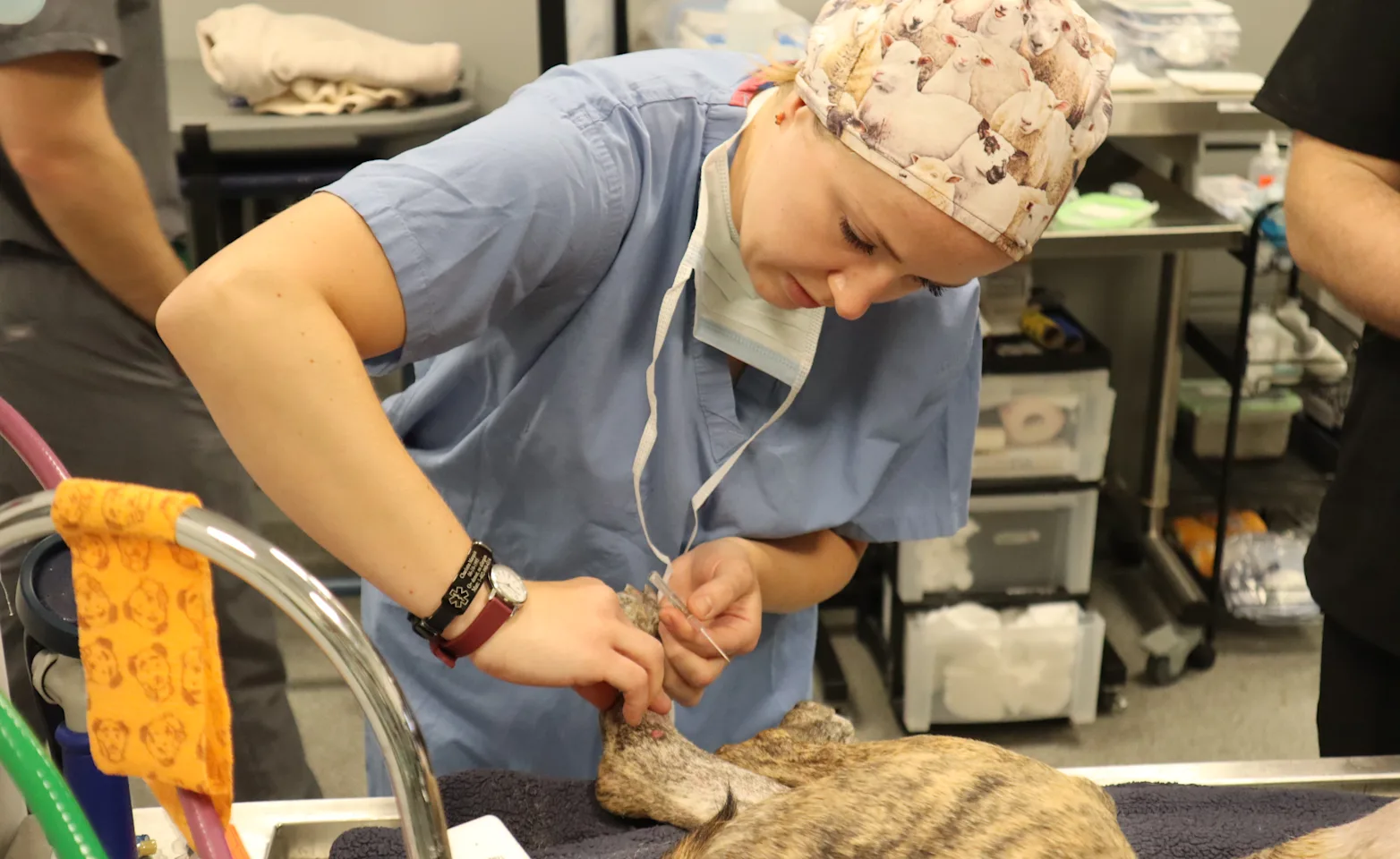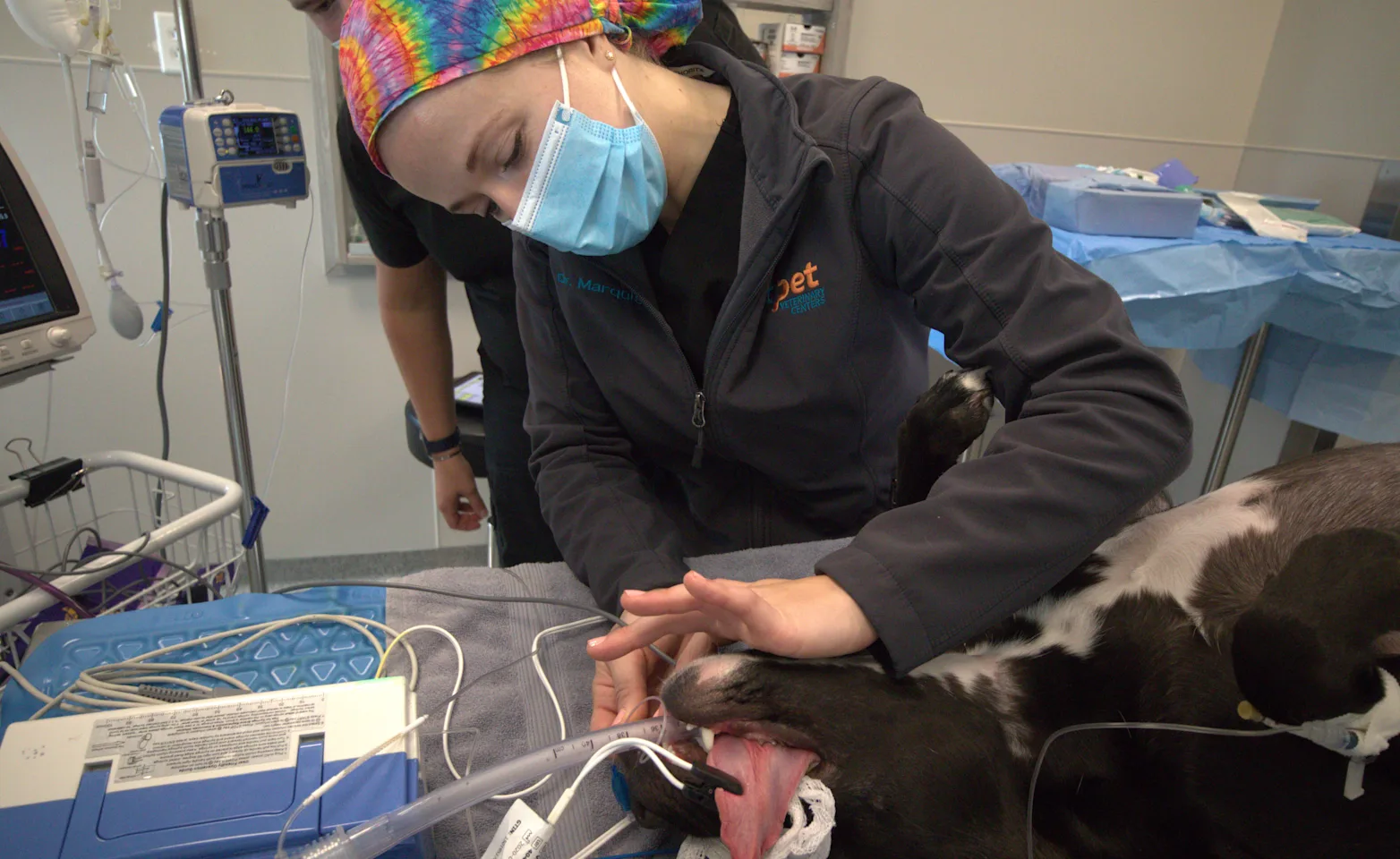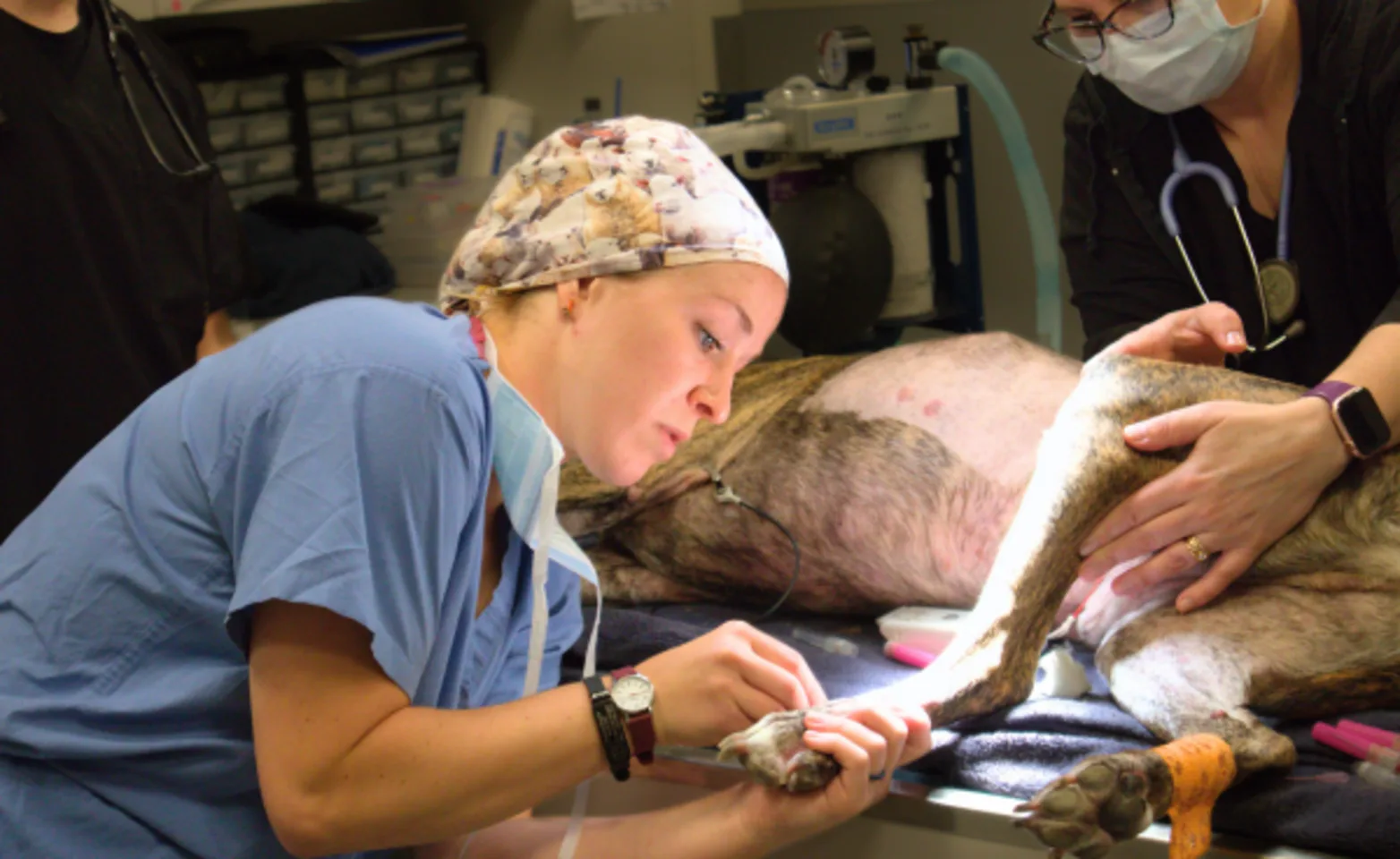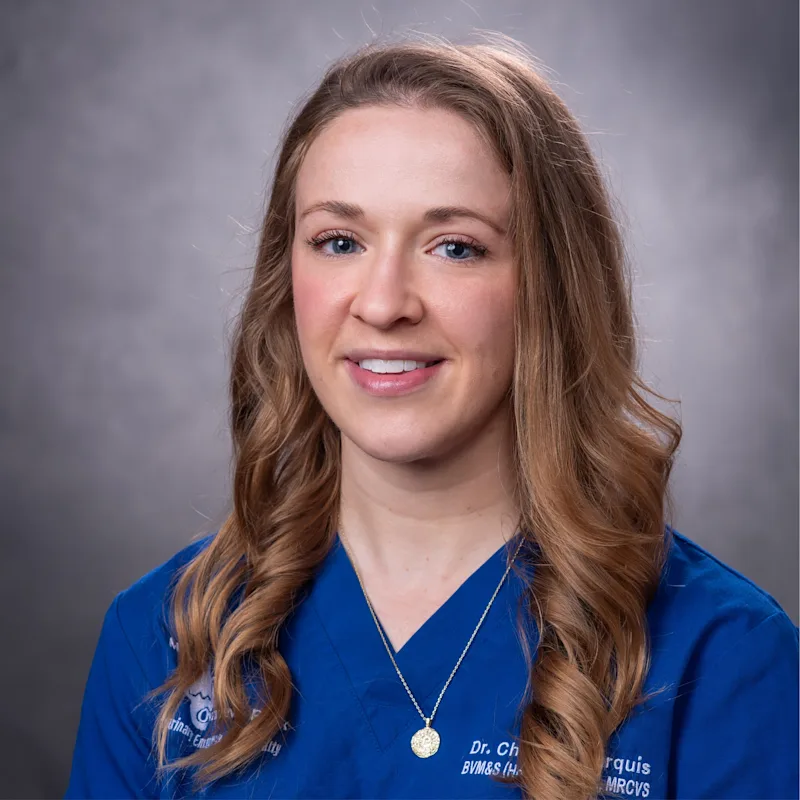Mission Veterinary Emergency & Specialty

What are the typical reasons for anesthesia?
Anesthesia is a combination of unconsciousness, analgesia (pain relief), and muscle relaxation. Sedation and general anesthesia allow our team to perform procedures such as imaging (CT, MRI, radiographs) or surgery without undue fear, anxiety, and stress for your pet.
General anesthesia involves several key phases: pre-medication, induction, maintenance, and recovery. To help your pet fall asleep, injectable medications- such as alpha-2 agonists, opioids, benzodiazepines, and dissociative anesthetics- may be administered. During imaging or surgical procedures, inhalant or injectable anesthesia is used to keep your pet safely unconscious. Additional therapies like locoregional anesthesia or anti-emetics may also be used to enhance comfort and minimize negative side effects.
Advanced Anesthesia & Pain Management for Every Patient
At our hospital, ensuring a safe and successful outcome for every patient is our highest priority. We are dedicated to delivering gold-standard veterinary anesthetic care at every stage.
Recognizing that each patient is unique, our anesthesia team, led by Dr. Charlotte Marquis and Dr. Kathryn Ryan, collaborates closely with our specialists to develop individualized anesthetic and pain management plans for anything from routine diagnostics to emergency procedures.
Pet owners can feel confident knowing their pets are in expert hands. Our comprehensive anesthetic care (included in the cost of treatment) supports safe outcomes across a wide range of procedures. This care consists of:
Pre-Anesthetic Evaluation: Each pet is assessed based on their physical condition, medical history, and personality. Following the assessment, a custom anesthesia plan is tailored to meet their needs and ensure a safe approach.
Monitoring: Monitoring starts at anesthetic induction and continues into the recovery period. Our anesthesia team uses advanced techniques to support each patient's well-being before, during, and post-procedure. Anesthesia trained technicians will stay with your pet well into the recovery process, ensuring the patient is stable and comfortable after surgery and procedures.
Pain Management: At our hospitals, pain management is a priority! Our anesthesia team uses medication and good quality nursing care to keep your pet comfortable during their stay. Dr. Marquis has advanced training in performing nerve stimulator and ultrasound-guided local anesthesia for patients needing fracture repair, TPLO, amputation, foreign body surgery, and more.
Comprehensive Care Team: Having a big team has its perks! Dr. Marquis and Dr. Ryan work alongside our specialists, including our surgeons, cardiologist, internists, neurologist, and oncologists. This integrated approach leads to better overall care for your pet.

Anesthesia and Pain Management Services Include:
Ultrasound and nerve stimulator-guided nerve blocks
Diagnostic nerve blocks
Lumbosacral and sacrococcygeal epidurals
Epidural catheter placement
Conventional pain-relief medications such as non-steroidal anti-inflammatory drugs (NSAIDs) and gabapentinoids
Complimentary therapies such as anti-emetics, phenothiazines, NMDA antagonists and behavior modifying drugs
Remote anesthesia & pain management consults by phone or email

Our Monitoring Techniques Include:
Our monitoring techniques include:
Electrocardiography (ECG)
Pulse oximetry (SpO₂)
End-tidal capnography (ETCO₂)
Mechanical ventilation
Oscillometric and arterial blood pressure measurement
Central venous pressure monitoring
Pulse waveform analysis
Point-of-care ultrasound (aFAST, tFAST)
Assessment of your pet’s depth of anesthesia
Evaluation of your pet’s comfort level before, during, and after the procedure
After the procedure is complete, your pet will be transferred to our recovery area, where they will be closely monitored by our anesthesia-trained technicians and anesthesiologist.
Whether your pet is here for an elective or emergency procedure, you can feel confident knowing they are receiving gold-standard veterinary anesthetic care from the moment they arrive until the moment they leave.


